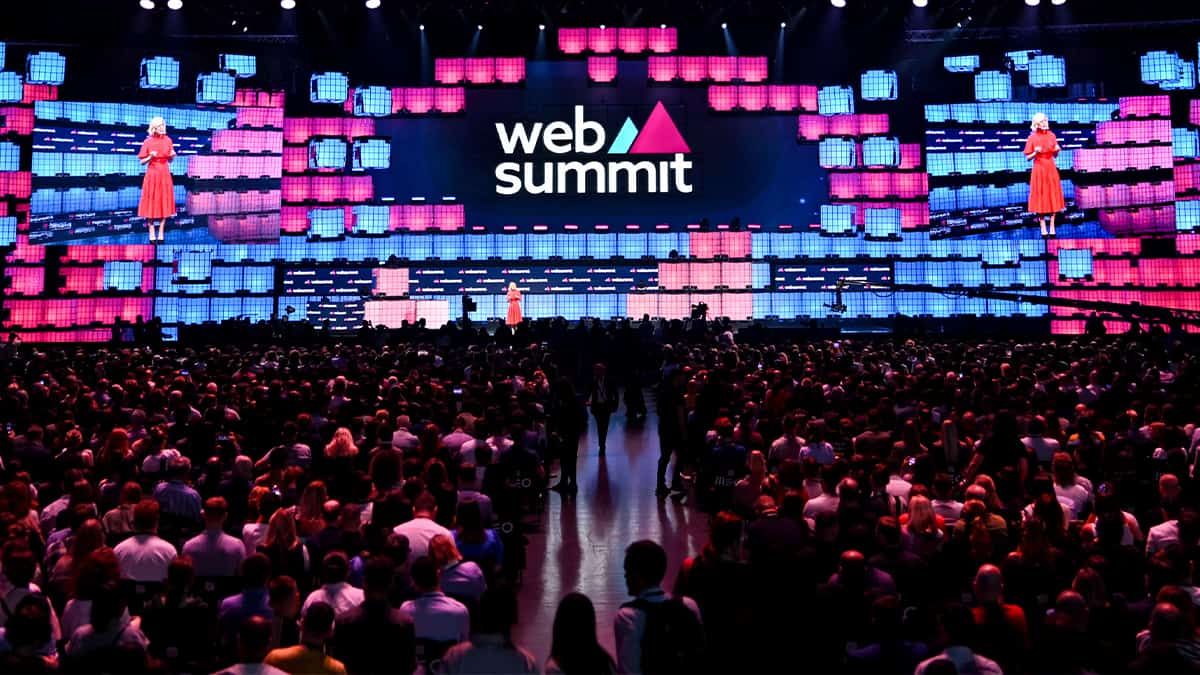At Web Summit 2024, one message stood out: artificial intelligence (AI) is no longer futuristic—it’s part of how we live and work today. Serhii Tokarev, co-founder and partner at Roosh Ventures, highlighted how AI is transforming industries and our daily lives.
According to Serhii Tokarev, AI has already become an integral part of our everyday lives and Web Summit shows that AI is no longer just a trend, it’s becoming a core part of how we work, innovate, and live. “This transformation is not just on the horizon; it is happening now.”
AI is being adopted across industries at an incredible pace. From healthcare to manufacturing, businesses are finding new ways to use this technology. A McKinsey & Company survey shows that 65% of businesses now use generative AI, nearly double the number from just ten months ago.
Investors are also betting big on AI. In 2024, global funding for AI startups jumped 45% from the previous year, reaching $127 billion. Companies like Microsoft and Google are leading the charge. Microsoft has committed $1.3 billion to improve AI infrastructure and skills, while Google is working with European research labs to expand AI’s potential.
These investments highlight how critical AI has become to business and society.
In today’s competitive world, businesses can’t afford to ignore AI. According to Serhii Tokarev, companies that embrace AI are positioning themselves for success, while those that don’t risk being left behind.
“Companies that ignore AI risk obsolescence, while those who embrace it are at the forefront of a new era,” he said.
AI is already proving invaluable in several areas:
- Creating New Business Models: AI drives innovation, enabling entirely new ways to connect with customers.
- Personalizing Products and Services: AI makes personalized recommendations and products, from streaming suggestions to fitness trackers.
- Improving Efficiency: AI takes over repetitive tasks, freeing up time and resources.
- Enhancing Customer Support: AI-powered tools speed up response times and let human agents focus on more complex issues.
- Analyzing Data: AI processes large amounts of data quickly, uncovering trends and insights that would be impossible to find manually.
These benefits make AI essential for businesses looking to thrive in the modern world.
AI isn’t just for businesses. It’s also making a difference in science, sustainability, and environmental research.
- In Science: AI accelerates research in areas like drug discovery, genomics, and climate science by processing data faster and more effectively.
- In Sustainability: AI helps optimize resource use, supports biodiversity, and improves farming practices.
- In Ecology: By analyzing data in real time, AI improves climate models and helps researchers respond quickly to environmental changes.
With advancements in AI come significant challenges, particularly in the realm of cybersecurity. As the technology evolves, the need for robust online security grows. Serhii Tokarev highlighted that cybersecurity is set to become a fundamental aspect of everyday life, stressing its importance for individuals and businesses alike.
AI tools are steadily becoming an integral part of daily activities. Millions of people now rely on ChatGPT for tasks like learning, writing, and communication. Similarly, generative AI applications that create art, music, and code are gaining traction across various demographics.
A Boston Consulting Group study revealed that 75% of respondents have already interacted with tools like ChatGPT, underscoring AI’s deep integration into modern life. Meanwhile, the smart home market, valued at $87.5 billion in 2022, is forecasted to grow annually by over 17% through 2028, highlighting AI’s expanding influence in consumer technology.
Meanwhile, the global smart home market, valued at USD 87.51 billion in 2022, is projected to grow at a compound annual growth rate (CAGR) of 17.26% through 2028.
The job market is also undergoing a transformation driven by AI. According to the World Economic Forum, AI is expected to generate 97 million new jobs globally by 2025 while automating 85 million existing roles. Serhii Tokarev noted that this shift is reshaping professions and emphasized the importance of preparing future leaders for this changing landscape. This was one of the motivations behind the establishment of SET University in Ukraine, aimed at fostering innovative education for tech industry professionals.
Looking ahead, the possibilities for AI remain vast. Personalized education tools and advanced healthcare applications are just some of the areas where AI will have a profound impact. Serhii Tokarev emphasized that businesses and individuals must engage with AI actively and responsibly to unlock its full potential. He underscored that AI is not exclusive to tech specialists; instead, it is a resource that can benefit everyone. Learning to use AI effectively will be the key to maximizing its value in both personal and professional contexts.
Web Summit 2024 made it clear that AI is not merely an emerging technology—it is now a critical component of how industries and individuals operate. Adopting this technology has become essential for staying competitive and innovative in an AI-driven world.
